Swami Shraddhanand-A tribute to a great soul
In 1922, Dr Bhim Rao Ambedkar famously called Swami Shraddhanand “the greatest and most sincere champion of the Untouchables”. In Indian history, this honorific title Great Soul (Mahatma) is bestowed upon Mohandas Karamchand Gandhi as ‘Mahatma’ Gandhi. Most historical texts characterize him as an angelic, saintly statesman who could do no wrong. But, in reality, there was one Mahatma whose name has all but been erased in Indian history textbooks. He was ‘Mahatma Munshiram’ more famously known as Swami Shraddhanand. For long, the Swami has been portrayed by historians as just a ‘Hindu’ revivalist. But if one goes through the story of his life one will find him to be a living portrait of bravery and sacrifice.
Swami Shraddhanand’s shuddhi mission of reconverting Malkana Rajputs, did not go down well with late M.K. Gandhi. In the 1922 issue of his magazine, Young India, he is reported to have criticized Swami Shraddhanand in an article, titled ‘Hindu-Muslim-Tensions: Causes and Resistance’.
Gandhi wrote:
Swami Shraddhanand has also become a character of disbelief. I know that his speeches are often provocative. Just as most Muslims think, that every non-Muslim will one day convert to Islam, Shraddhanand also believes that, every Muslim can be initiated into the Aryan
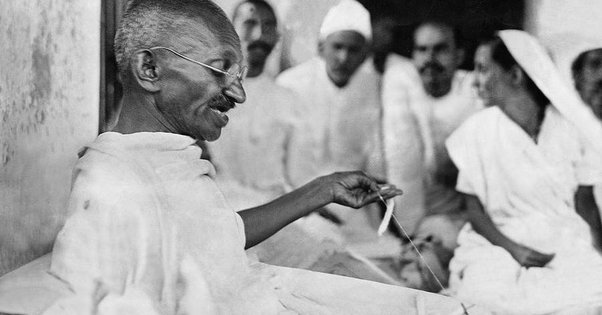
With the passage of time and changing political scenarios, a conflict broke out between Mahatma Gandhi and Swami Shraddhanand, formerly Mahatma Munshiram.
The first point of disputation between the two was regarding the issue of helping the untouchables. In his address as chairman of the Amritsar Congress session in 1919 he stated:
Is it not true that so many among you who make the loudest noises about the acquisition of political rights, are not able to overcome their feeling of revulsion for those sixty millions of India who are suffering injustice, your brothers whom you regard as untouchable ? How many are there who take these wretched brothers of theirs to their heart?…give deep thought…and consider how your sixty million brothers-broken fragments of your own hearts which you have cut off and thrown away- how these millions of children of mother India can well become the anchor of the ship of a foreign government. I make this one appeal to all of you, brothers and sisters. Purify your hearts with the water of the love of the motherland in this national temple, and promise that these millions will not remain for you untouchables, but become brothers and sisters. Their sons and daughters will study in our schools, their men and women will participate in our societies, in our fight for independence they will stand shoulder-to-shoulder with us, and all of us will join hands to realize the fulfillment of our national goal
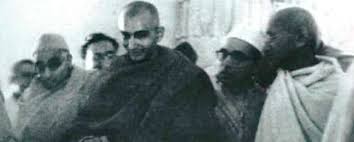
In the Calcutta Congress session in 1920, Swami Shraddhanand proposed a three-point program with special section on the untouchables, but the party then firmly under Gandhi’s
leadership declared the program to be ill-timed. By 1921, the Swami was frustrated with Gandhi’s negligence regarding the welfare of the untouchables. He wrote:
The Delhi and Agra Chamars simply demand that they be allowed to draw water from wells used by the Hindus and Mohammedans and that water be not served to them (from Hindu water booths) through bamboos or leaves. Even that appears impossible for the Congress Committee to accomplish…. At Nagpur you laid down that one of the conditions for obtaining Swarajya within 12 months was to give their rights to the depressed classes and without waiting for the accomplishment of their uplift, you have decreed that if there is a complete boycott of foreign cloth up till the 30th September, Swarajya will be an accomplished fact on the 1st of October…I want to engage my limited energy in the uplift of the depressed classes. I do not understand whether the Swarajya obtained without the so-called Untouchable brethren of ours joining us will prove beneficial for the Indian nation.
Born on February 22, 1856 at village Talwan in the Jalandhar district of the then undivided Punjab, Shraddhanand was originally given the name of ‘Brihaspati’, but it was later changed to Munshiram. His father, Shri Nanak Chand, was in the service of the East India Company.
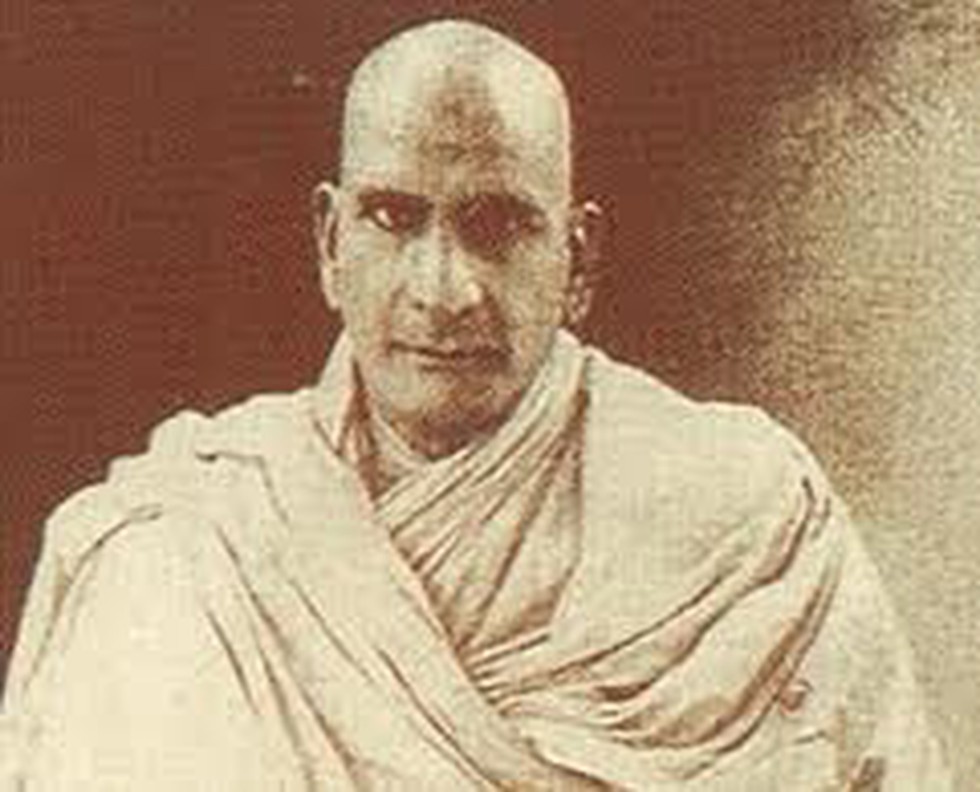
Young Munshiram’s school education began at Varanasi and ended in Lahore after passing the examination to practice law. His early education was interrupted because of his father’s frequent transfer to Mirzapur and Bareilly. This frequent movement prompted Munshiram to lead a wayward life getting involved in certain activities which are frowned upon by society at large. After coming across several instances of injustice as well as signs of depravity in the then Hindu society, an angry Munshiram denounced Hinduism. This denouncement coupled with an unruly lifestyle alienated him from friends and family (he was married by then). But on realizing the harmful affect his disorderly life had on his wife and children, Munshiram decided to mend his ways.
And it was at that favorable moment that Munshiram met the radical social reformer and founder of the Arya Samaj , Swami Dayanand Saraswati. After having an extensive discussion with the Swami on socio-religious matters Munshiram became a man with a mission to reform Hindu society. He became a successful lawyer practicing in Lahore and Jalandhar while simultaneously carrying out social activities for the Arya Samaj.
As a follower of the Arya Samaj, Munshiram led a crucial campaign for women’s education. In 1889, he penned an important series of articles regarding women’s education in the Arya Samaj-run newspaper Saddharmpracharak. The series was entitled ‘Half Justice’ in which he pleaded for the education of women citing examples of Vedic Rishikas like Gargi and Matraiyi. As a matter of fact, when he saw his own daughter coming under the influence of Christianity while studying in a Missionary-run school, he made up his mind to provide an education rooted in Indian ideals to the children of his compatriots in schools run by the Arya Samaj. His efforts led to the setting up of the first Kanya Mahavidyalay in Jalandhar.
Enlightened Hindu scholars pointed out the three main issues which had caused decay in the Hindu society—child marriage, forced widowhood and caste-based prejudice. As a true Arya Samaji, Munshiram repeatedly defended the rights of the lower-castes and went on to establish ‘Dalit Uddhar Sabha’ which worked ceaselessly for the wellbeing of the much ignored untouchables. Being perturbed by the exploitation of the Hindu widows, he led the Arya Samaj to organize the remarriage of widows. These activities made Munshiram a
widely respected figure among the general masses. It was due to his selfless commitment towards society’s well-being which made the masses honor him a ‘Mahatma.’
In the year 1917, Munshi Ram became a ‘Sanyasi’, assuming the name ‘Shradhanand’ and in 1919, he joined Congress’s Non-cooperation movement.In 1922, Swami Shraddhanand resigned from the Sub-Committee of Congress due to disagreements with Gandhi on helping the untouchables. The disagreement arose due to the Congress’ refusal to meet the fiscal demands of Shraddhanand which was required for the welfare programs. Following his resignation from the Congress, Swamiji decided to join the Hindu Mahasabha. This issue has been covered in the Babasaheb Ambedkar’s ‘What Congress and Gandhi Have Done to the Untouchables?’ As Ambedkar writes:
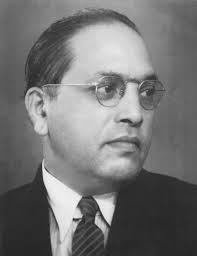
Was it because the Congress intended that the scheme should be a modest one not costing more than two to five lakhs of rupees but felt that from that point of view they had made a mistake in including Swami Shradhanand in the Committee and rather than allow the Swami to confront them with a huge scheme which the Congress could neither accept nor reject? The Congress thought it better in the first instance to refuse to make him the convener and later to dissolve the Committee and hand over the work to the Hindu Mahasabha. Circumstances are not quite against such a conclusion. The Swami was the greatest and the most sincere champion of the Untouchables. There is not the slightest doubt that if he had worked on the Committee he would have produced a very big scheme.
The second issue of clash between Swamiji and Gandhiji was the issue of Hindu-Muslim unity. The Swami was a staunch supporter of Hindu-Muslim unity but that he did not welcome the Islamic fanaticism that was on the rise during the 1920’s. He noticed the difference in attitudes of Muslim leaders during 1920-1922 on the Khilafat movement and assumed correctly that this movement will change the focus from gaining independence for India to Pan-Islamism.
In 1921 when Gandhi decided to boycott English products and called for a bonfire of foreign clothes, the Khilafat Muslim activists instead got permission from Gandhi to send the same foreign clothes to Turkey for use of their fellow Turkish Muslims. Swamiji felt uneasy during some of the Khilafat conferences where the Maulanas recited verses of the Quran containing references to jihad and frequent killing of kafirs. But Gandhi opined that “they are alluding to the British bureaucracy.” Yet, Swamji warned that “when the revulsion of feeling came,” the Maulanas would not refrain from using those same verses against the Hindus. And he was right.
Following the failure of the Khilafat movement, horrendous atrocities were committed by the Moplah Muslims in Malabar, Kerala, against the Hindus. The Moplah Muslims saw Hindus as their enemies and unleashed terror upon them. Swami Shraddhanand had given a speech at Delhi’s Jama Masjid in the year 1922. He recited Vedic Mantras first and gave an inspiring speech. This was an extraordinary moment in the history of the world. He wrote on religious and spiritual issues in both Hindi and Urdu. He also founded two prominent newspapers: the Urdu ‘Tej’ and the Hindi ‘Arjun’. He promoted Hindi in the Devanagri script, helped the poor and promoted the education of women. By 1923, he left the social arena and plunged whole-heartedly into his earlier work of the Shuddhi Movement, coming back into the fold of Hindu Dharma.
To stop the Islamicization of the country coupled with the shock he received following the Moplah atrocities, Swamijiestablished the Bharatiya Hindu Shuddhi Sabha along with Pandit Madan Mohan Malavia in 1923 with the following declaration:
The great Arya nation is said at the present moment to be a dying race, not only because its numbers are dwindling but because it is completely disorganized. Individually man to man second to no nation on the earth in intellect and physique, possessing a code of morality unapproachable by any other race of humanity, it is still helpless on account of its divisions and selfishness. Lakhs upon lakhs of the best in the race have been obliged to profess Mohammedanism and thousands have been enticed away to accept Christianity without the least effort on the neo-Muslim Brahmans, Vaishyas, Rajputs and Jats have for more than two centuries and more been casting yearning glances and kept their Hindu faith and prejudices intact in the hope of being taken back in the bosom of their brotherhood. A mere chance opened Hindu eyes, The Rajputs Mahasabha announced with a flourish of trumpets that four and a half lakhs Muslim Rajputs were ready for becoming Hindus. After having made this misleading announcement the Rajputs Sabha went to sleep. I call the announcement misleading because an overwhelming majority of them had never become Muslims in faith and practice. The Hindus went to sleep, but the Muslims being a living force were roused to action and scores of their preachers are at work for whose maintenance and propaganda work money is flowing like water. This after all roused the Hindu community also and there is now a cry from all sides for absorbing out strayed brethren in the bosom of the Vedic church, a new Sabha has been organized under the name of the Bhartiya Hindu Suddhi Sabha with the object of reclaiming those who are willing to come back to its fold.
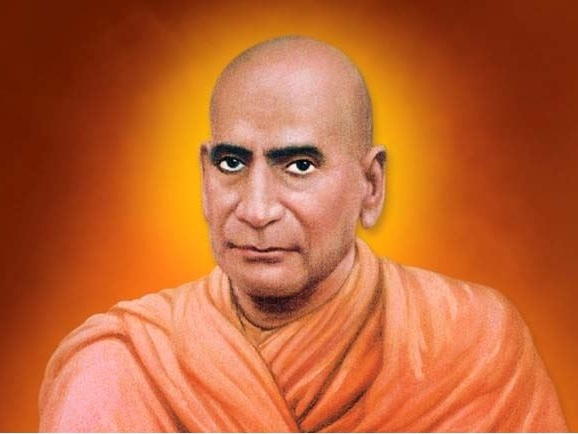
In late 1923, he became the president of Bhartiya Hindu Shuddhi Sabha. He started a campaign for bringing converted Hindus back into the fold of Hindu Dharma. He opened an office in Agra. There were many Rajputs at Agra, Bharatpur, Mathura etc. who had been converted to Islam that time only; but they wanted to come back to Hindu Dharma. Five lakh Rajput Muslims were ready to be Hindus again. Swami Shraddhanand was leading this campaign. He organized a huge gathering for this purpose and brought them back into their original religion. Many villages got back into the fold of Hindu Dharma. This mission created a new consciousness, a new energy and enthusiasm among Hindus and the number of Hindu organizations increased. A Muslim woman named Ajgari Begum from Karachi was initiated into Hindu Dharma. This process was opposed by many Muslim and Christian groups (which is hypocritical as both these faiths promote conversions).
As a response to the Shuddhi Movement, many Muslim leaders made a series of provocative speeches against the Arya Samaj and the Swami. Some of those speeches amounted to death threats but the brave Swami did not yield and continued his Shuddhi activities. Then on 23 December 1926 when he was lying sick in his bed, a fanatic named Abdul Rashid came to his residence his saying wish to discuss Islam with Swamiji. He had hidden a gun inside his shawl and on confronting Swami Shraddhanand, fired three shots at him, killing him.
The annual session of the Congress was taking place from December 25, 1926, at Guwahati. All the senior leaders, including Gandhi, were present at the session when the news of the gruesome murder of Swami Shraddhananda came in. Gandhi called Abdul Rashid his ‘own brother’, but moved a condolence motion himself. “If you hold dear the memory of Swami Shraddhanandji, you would help in purging the atmosphere of mutual hatred and calumny. Now you will perhaps understand why I have called Abdul Rashid a brother and I repeat it. I do not even regard him as guilty of Swamiji’s murder. Guilty indeed are all those who excited feelings of hatred against one another”, Gandhi said to the shock of many in the audience.
As a tribute to the man who was martyred for the Hindu cause, Savarkar’s brother Narayanrao decided to start a weekly titled Shraddhanand from Bombay, beginning 10 January 1927. Savarkar contributed several articles to this weekly under pen-names.
As mentioned in the beginning of this article, Swami Shraddhanand has been portrayed by contemporary historians as just a ‘Hindu’ revivalist. His role in promoting women’s education, eradication of untouchability, social welfare and patriotism have all been swept under the rug. He is revered only by the Arya Samajis. To the millions of Indians for whose welfare he labored vigorously throughout his life, and ultimately died for them, he is not even a memory.
by Shesha Patangi


More Stories
Kenya: What I saw at Nairobi will remain unforgettable.
Trinidad trip: Whatever I saw, my heart was filled with pride.
What message is the movie Maa Kali going to give?